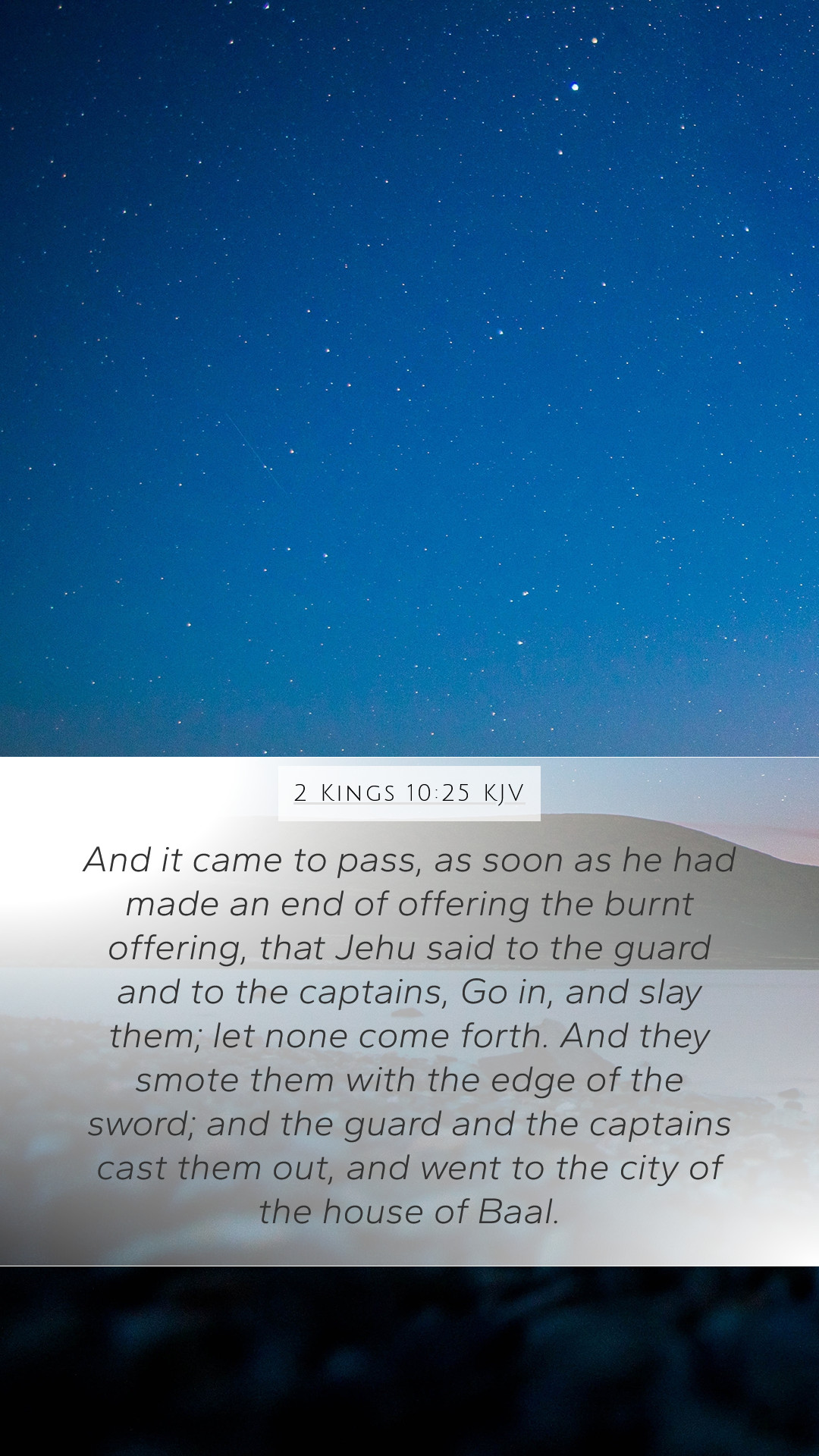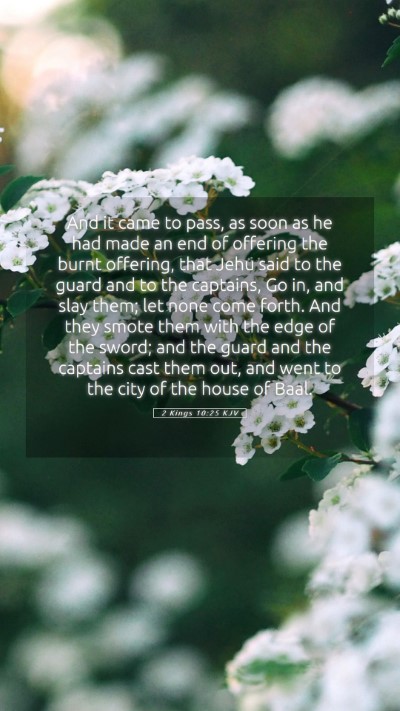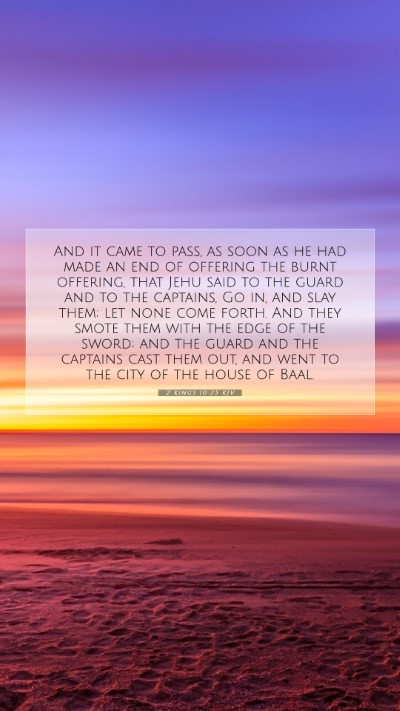Understanding 2 Kings 10:25
2 Kings 10:25 reads: "And it came to pass, as soon as he had made an end of offering the burnt offering, that he said to the guard and to the captains, Go in, and slay the prophets of the Lord; let none come forth: and they smote them with the edge of the sword; and the guards and the captains cast them out, and went to the city of Samaria."
Bible Verse Commentary
This verse highlights the violent and tumultuous events surrounding the reign of Jehu in Israel. The context of this passage illustrates a significant moment in the Israelite history where Jehu is eradicating the worship of Baal from the land, fulfilling a prophecy against the house of Ahab. Public domain commentaries provide a variety of insights into this passage.
Commentary Insights
-
Matthew Henry's Commentary:
Henry underscores the fulfillment of God's judgment against Ahab's lineage. He notes that Jehu's actions, though harsh, were in accordance with divine instruction to purge Israel of Baal worship. The verse signifies the seriousness of idolatry and the consequences that actors will face when they oppose God’s commands.
-
Albert Barnes' Notes:
Barnes highlights the swift obedience of Jehu's guards and captains to execute the Lord's judgment. He points out that the act of slaying the prophets demonstrates the stark reality of spiritual warfare during this period. Barnes emphasizes the crucial role of leadership in directing the path of righteousness or rebellion against God.
-
Adam Clarke's Commentary:
Clarke provides a perspective on the historical context of the event, stating that Jehu's reform was necessary but enacted with ruthless efficiency. He indicates that this call to eliminate the prophets shows a decisive break with the previous regime and hints at the broader implications of divine justice within a covenant context.
Biblical Exegesis
This verse can be analyzed through the lens of Biblical exegesis by examining the historical and theological implications of Jehu’s actions. Jehu is depicted as a zealous reformer whose reign was marked by violence, yet it is portrayed as necessary for the restoration of proper worship in Israel. The emphasis on the "burnt offering" before the massacre suggests a deceptive show of worship, mirroring Israel's tendency to mix true worship with false practices.
Key Themes
- Judgment Against Idolatry: The verse serves as a crucial reminder of God’s intolerance for idolatry and false worship.
- Leadership and Accountability: Jehu's role illustrates the weight of responsibility that leaders have in guiding their people towards or away from God's paths.
- Obedience to Divine Will: The readiness of Jehu's group to execute this task reveals a concerning willingness to follow orders in the name of perceived righteousness.
Application of 2 Kings 10:25 in Daily Life
For modern readers, the events in 2 Kings 10:25 can provoke important questions about the nature of obedience to God and the repercussions of idolatry in a contemporary context. The historical significance encourages reflection on the seriousness of spiritual commitments and the impact of cultural influences that oppose God's truths. Believers can draw lessons on how to stand firm in their faith amidst societal pressures to conform to practices that contradict their beliefs.
Bible Study Insights
The rich historical narrative surrounding 2 Kings 10:25 serves as essential Bible study material. It challenges individuals and Bible study groups to critically engage with the text and reflect on societal values and personal convictions regarding worship and allegiance to God.
Related Bible Cross References
- 1 Kings 18:40: The execution of the prophets of Baal by Elijah, which sets a precedent for Jehu's actions.
- 2 Kings 9:7: The prophecy regarding the destruction of the house of Ahab, which Jehu fulfills.
- 2 Kings 10:28: A summary of Jehu's annihilation of Baal from Israel.


